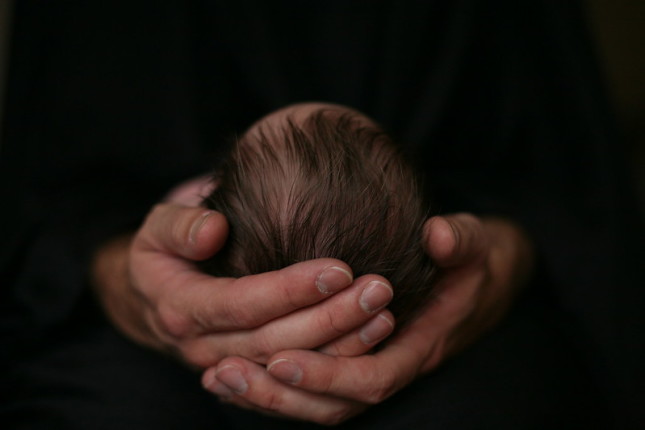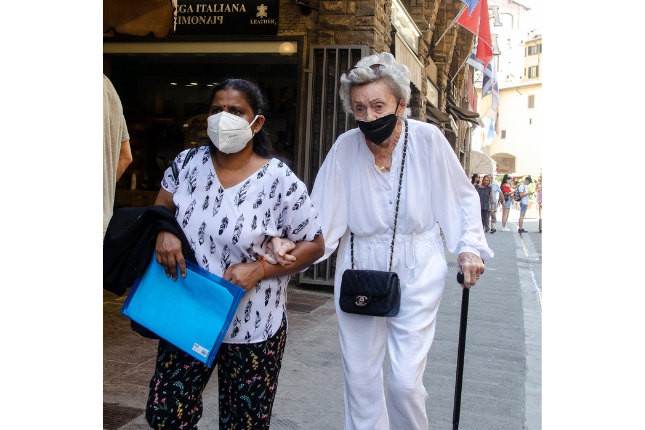-
Update on Russia’s Invasion of Ukraine: The View From Parliament
›
In this edition of Wilson Center NOW, Update on Russia’s Invasion of Ukraine: The View From Parliament, John Milewski, Moderator of the Wilson Center NOW series, interviews Kira Rudik, Member of Parliament of Ukraine, First Deputy Chairwoman of the Parliament Committee on Digital Transformation, Leader of the Golos Liberal Political Party, and Vice-President of the Alliance of Liberals and Democrats for Europe (ALDE). Rudik has spoken with the Wilson Center twice before, as the onset of the war and at its one-year anniversary. This NOW interview centers on updates on the war, the role of government and allies, and the continued resolve of the Ukrainian people.
-
New Global Health & Gender Policy Brief: The Global Burden of Stillbirths
›
In 2021, 1.9 million stillbirths occurred globally. A baby who dies at or after 28 weeks of pregnancy,* and is born with no sign of life is classified as a stillbirth. Stillbirths can be caused by pregnancy and childbirth-related complications, like hemorrhage, placental abruption, and pre-eclampsia; maternal infections during pregnancy, including malaria and sexually transmitted infections; prolonged pregnancy to 42 weeks or more; and pre-existing health conditions. Other risk factors include maternal age and smoking during pregnancy.
-
Women’s Leadership: Efforts to Close the Gender Gap
›
In this Women’s History Month edition of Wilson Center NOW, Women’s Leadership: Efforts to Close the Gender Gap, John Milewski, Moderator of the Wilson Center NOW series, interviews Sarah Barnes, Project Director for the Wilson Center’s Maternal Health Initiative, and Samantha Karlin, Founder and CEO of Empower Global, a gender consulting firm that works with organizations to help them better recruit, retain, and advance women. They discuss feminist leadership, women in the think tank space, and the work remaining to achieve gender equality. The 2023 Women’s History Month theme is Women Who Tell Our Stories.
-
New Global Health & Gender Policy Brief: Migrant Care Workers and Their Families
›
Migrant care work is a key component of the ongoing global care crisis. The global care economy is critical to overall economic growth, and also affects gender, racial, and class and caste equity and empowerment. Caregiving is also the fastest-growing economic sector in the world—projected to add 150 million jobs by 2030. Global societal changes, like low birth rates, demographic aging, and an increase in female labor force participation, are basic drivers of the continued growth of this sector. But because in many cultures care work is considered “instinctive” for women—a type of work not requiring skill—it has remained virtually invisible, unpaid or underpaid and unregulated. It is also often stigmatized, especially when relegated to already marginalized and underrepresented populations.
-
New Global Health & Gender Policy Brief: Mental Health and COVID-19
›
The COVID-19 pandemic has had far-reaching, negative impacts on health and well-being, particularly in population mental health. Mental health is strongly related to people’s social environment, and the COVID-19 pandemic disrupted this greatly. Many countries instituted shutdowns early in the pandemic restricting people’s movement both within and between countries. Shutdowns socially isolated people from one another and often led to poor mental health. The highest rates of mental distress occurred during time periods when COVID-19 mitigation measures were strictest and the number of COVID-19 related deaths was highest.
-
New Global Health & Gender Policy Brief: Global Fertility Rates and the Role of Infertility
›
While the world’s population now approaches 8 billion people, global fertility rates have been declining for decades. The overall drivers of this decline include increased access to contraception and reproductive health care, an increase in women seeking higher education, women’s empowerment in the workforce, lower rates of child mortality globally, increased cost of raising children, and overall greater gender equality.
-
New Global Health & Gender Policy Brief: The Global Care Economy
›
Care work makes all other work possible. It is also the fastest-growing sector of work in the world—projected to add 150 million jobs by 2030. The COVID-19 pandemic has amplified the importance of care work. It has also exposed how women perform most caregiving work, which is unpaid, underpaid, and/or undervalued. Globally, women and girls contribute more than 70 percent of total global caregiving hours (paid and unpaid) and perform more than 75 percent of unpaid care work. The inordinate amount of unpaid care work women and girls perform prevents them from earning a paid income, which contributes to greater gender inequities worldwide.
-
The Maternal Health Initiative Launches the CODE BLUE Series on Non-communicable Diseases and Maternal Health
›
Each year, non-communicable diseases (NCDs) account for 2 in every 3 deaths among women globally. It is estimated that NCDs kill 35 million people each year, and women of reproductive age make up about half of these deaths. The compounding effects NCDs have on pregnancy complicate women’s experiences in many unseen ways. The rise and gravity of NCDs pose a growing and often overlooked challenge to maternal health worldwide.
Showing posts by Maternal Health Initiative Staff.











